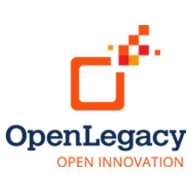

Informatica Intelligent Data Management Cloud (IDMC) and OpenLegacy compete in enterprise data management. Informatica IDMC holds the advantage with its comprehensive features and easier integration, whereas OpenLegacy offers unique strengths in legacy system and API generation.
Features: Informatica IDMC offers AI-driven data quality, extensive data integration capabilities, and master data management. OpenLegacy specializes in seamless API creation, easy integration with legacy systems, and efficiency for modernization projects.
Room for Improvement: Informatica IDMC could enhance user interface intuitiveness, improve support for non-standard integrations, and streamline licensing processes. OpenLegacy should expand its cloud-native capabilities, enhance scalability for larger enterprise needs, and improve documentation for complex deployments.
Ease of Deployment and Customer Service: Informatica IDMC provides a robust cloud-based deployment model with strong customer support. It simplifies integration across environments. OpenLegacy focuses on efficient deployment for legacy systems and offers direct access to expert support. Informatica's cloud infrastructure offers easier initial deployment; OpenLegacy provides quick support for legacy challenges.
Pricing and ROI: Informatica IDMC entails a higher initial investment with a potentially substantial ROI for comprehensive solutions. OpenLegacy features a lower entry cost targeting quick modernization projects. Though Informatica’s pricing is higher, its ROI can be greater for broad initiatives. OpenLegacy’s cost-effectiveness is appealing for specific legacy projects, offering quicker ROI.
| Product | Market Share (%) |
|---|---|
| Informatica Intelligent Data Management Cloud (IDMC) | 0.5% |
| OpenLegacy | 0.5% |
| Other | 99.0% |

| Company Size | Count |
|---|---|
| Small Business | 42 |
| Midsize Enterprise | 24 |
| Large Enterprise | 134 |
Informatica Intelligent Data Management Cloud (IDMC) integrates data quality, governance, and integration with flexible architecture. It supports multiple domains and a data models repository, delivering AI-enhanced data management across cloud-native platforms.
IDMC provides seamless integration and governance capabilities that support diverse data environments. Its comprehensive suite includes customizable workflows, data profiling, and metadata management. AI features, a data marketplace, and performance scalability enhance data management. While its interface poses challenges, its robust matching and cloud-native integration facilities are essential for complex data ecosystems. Users employ IDMC for connecting systems, ensuring data quality, and supporting data compliance but seek better pre-built rules, services, and improved connectivity, especially with platforms like Salesforce. Licensing, cost, and added AI functionalities are areas for potential refinement.
What are the key features of IDMC?IDMC is implemented across industries for data integration, metadata management, and governance. Organizations use it to connect systems, migrate data to cloud environments, and maintain data quality. They manage master data and automate business processes, facilitating data lineage and ensuring compliance with privacy regulations.
OpenLegacy helps organizations quickly launch innovative digital services by extending their core back-end systems to the web, mobile and cloud in days or weeks versus months. Our microservice-enabled API integration and management software quickly reduces project backlog by automating and accelerating microservices and API creation, deployment, testing and management from core applications, mainframes and databases. Together, business and IT teams can quickly, easily and securely meet consumer, partner or employee demands for digital services without modernizing or replacing core systems, and without special programming skills or invasive changes to existing systems and architectures. OpenLegacy is designed for ongoing management of microservices APIs and is based on open standards, so our software plays nice with your current technology stack and supports agile, DevOps and continuous development. Learn why leading companies choose OpenLegacy at www.openlegacy.com.
We monitor all API Management reviews to prevent fraudulent reviews and keep review quality high. We do not post reviews by company employees or direct competitors. We validate each review for authenticity via cross-reference with LinkedIn, and personal follow-up with the reviewer when necessary.